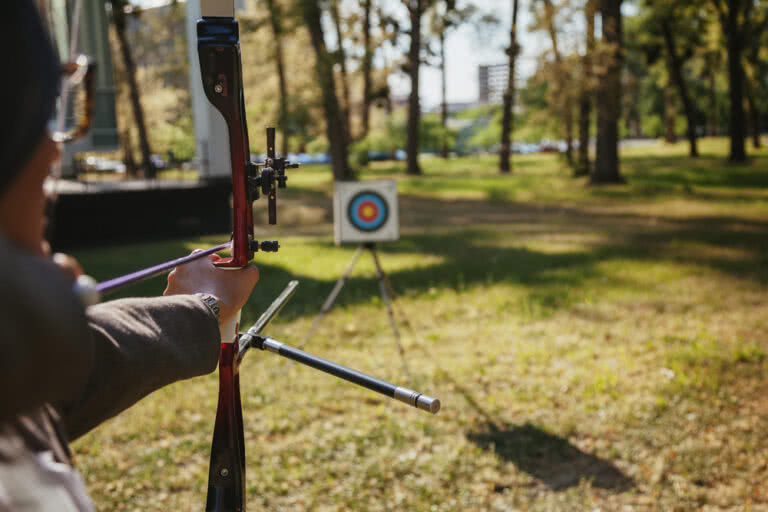With emails popping into our inbox at lightening speed, Skype pinging away impatiently and social media updates coming thick and fast, there are just so many things competing for our attention these days. And events are famous for demanding that you juggle your tasks like a circus performer.
It’s no surprise that we find it harder to concentrate and get things done than we maybe did in the past. If you think it’s affecting your performance, you can even test your continuous concentration by taking this brain test and see how you compare with others.
Don’t be discouraged if you scored low, because the adult brain is still malleable enough to respond to training. Follow these 6 steps below to train your brain, stop your mind from wandering and successfully enter ‘the zone’ and you’ll find yourself getting more done, more quickly than before.
1. Try mindfulness meditation
Mindfulness is a state of active, open attention on the present. It’s about being fully engaged with the experience taking place in that moment. So rather than sitting in a meeting, looking out the window and daydreaming about what you’re going to do at the weekend, you are mentally present, listening and alert.
Mindfulness is aided by meditation and breathing exercises, which are designed to keep the mind clear. Mindfulness meditation can be practised formally and informally, with sessions ranging from 30 minutes to just 5.
For an introduction to mindfulness meditation that you can practise on your own, download these free audio-guided sessions, provided by UCLA (University of California, Los Angeles) or take a read of this post, on An Introduction to Mindfulness for Event Planners.
2. Practice yoga
Yoga is another great way to improve concentration. By focusing on assuming and holding the postures (some of which are pretty challenging), or undertaking the breathing exercises your attention is brought to the present.
If you want to very quickly clear your mind, here’s an exercise you can do at your desk in just a couple of minutes (although you might get a few strange looks!):
Alternate Nostril Breathing
Hold your right hand with your palm in front of your face, and fold down your pointer and middle fingers. Before you inhale, use your thumb to hold your right nostril closed. Hold onto that breath, then release the right nostril and use your ring finger to hold your left nostril closed as you exhale.
Now, inhale while still holding the left nostril closed, then switch nostrils to exhale. Repeat this cycle until you feel more focused.
3. Go outside
Many have experienced the calming effects that a simple stroll in a park can produce and now there’s scientific evidence that green spaces help us concentrate.
In a study published online in the Journal of Attention Disorders, researchers at the University of Illinois led children diagnosed with attention deficit hyperactivity disorder (ADHD) through three different environments: a city park and two other less “green” urban settings. They measured an increase in attention after a 20-minute walk in the park.
“We don’t know what it is about the park, exactly—the greenness or lack of buildings—that seems to improve attention, but the study tells us that even though everything else was the same…we still saw a measurable difference in children’s symptoms,” said researcher Frances E. Kuo.
4. Listen to music
Have you heard of the ‘Mozart effect’? According to a 1993 study, listening to Mozart’s music may induce a short-term improvement in spatial reasoning skills, as measured by various tests such as pencil and paper maze tasks and paper cutting and folding exercises.
Since then, more research has linked classical music listening to improved concentration, as well as other types of music.
If you don’t like classical music, try ‘chill out’ electronic music genres such as trip-hop, nu jazz, ambient house, ambient trance or New Age; anything without distracting vocals.
Ambient sounds such as waterfalls, rain, the seashore or forest are also useful for keeping your brain engaged at a lower, subconscious level.
Putting on some headphones at the office can be a great way to cut out distracting chatter (whilst also signalling to colleagues not to interrupt) and help you focus on the job at hand.
5. Don’t multitask
Although multitasking is supposed to help us be productive and get things done, it can often have the opposite effect. When our concentration is split between several tasks, there is true focus on none.
Forbes highlights a recent Stanford University study that showed “people who are regularly bombarded with several streams of electronic information cannot pay attention, recall information, or switch from one job to another as well as those who complete one task at a time.” Even worse, multitasking can actually lower your IQ and damage your brain!
Given that evidence it makes sense to perform tasks one by one wherever possible, and devote your undivided attention to each. This doesn’t just apply to your work; for example, when you eat you should pay full attention to your food. Don’t read the newspaper or watch television, instead focus on each mouthful and you will be surprised how much more satisfying your meal becomes.
6. There’s an app for that!
There are a whole range of apps and online tools that claim to help you increase your focus. Here’s a few to try:
Focus Booster challenges you to focus on a single task for 25 minutes and then give yourself a 5-minute break. The app allows you to list out your daily tasks, and then tracks your time as you work through them. When 25 minutes are up, an alarm sounds and you get a break. It’s an easy way to practice expanding your attention span without going overboard.
Freedom automatically blocks all of the biggest online timesinks for a set period of time. Sites that are off-limits include Twitter, Facebook, Flickr, Digg, Reddit, YouTube, Hulu, Vimeo, and all standard web email programs. You may also add other favourite distractions to the blacklist.
Developed in partnership with neuroscientists, this app provides music “scientifically optimised to increase concentration and productivity”. According to its makers, trials show subjects experienced a typical 12-15% positive increase in focus and could concentrate for extended periods of time, in some cases up to 400% longer.
Conclusion
There are many simple things you can do to help you avoid distractions and increase your focus, and the more you practise them the better you will become.
While you may not be able to stop your mind wandering completely, at least when it does, you’ll have tools to rein it back in again.




